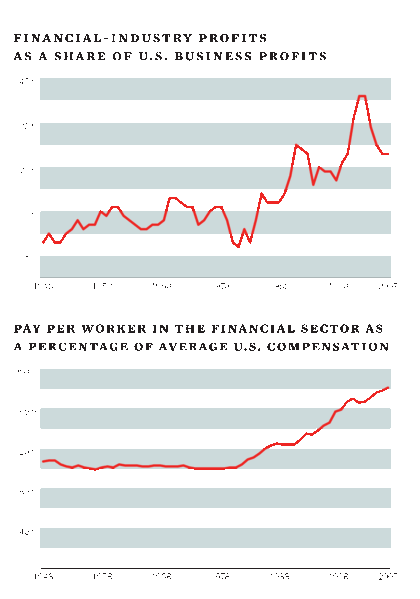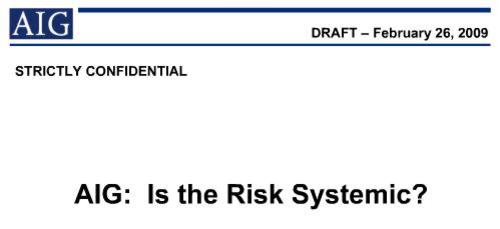America's bankers are oligarchs
Writing in the Atlantic, Simon Johnson, former chief economist of the IMF, takes a hard look at the econopocalypse and decides that the root of America's (and Europe's) economic woes is the cozy relationship between super-powerful bankers and government -- oligarchy. So, he says, we cannot fix the economy until we break up the banks, curb executive compensation in the finance sector, and turn it into "just another industry."The Quiet Coup (via Making Light)
Typically, these countries are in a desperate economic situation for one simple reason—the powerful elites within them overreached in good times and took too many risks. Emerging-market governments and their private-sector allies commonly form a tight-knit—and, most of the time, genteel—oligarchy, running the country rather like a profit-seeking company in which they are the controlling shareholders. When a country like Indonesia or South Korea or Russia grows, so do the ambitions of its captains of industry. As masters of their mini-universe, these people make some investments that clearly benefit the broader economy, but they also start making bigger and riskier bets. They reckon—correctly, in most cases—that their political connections will allow them to push onto the government any substantial problems that arise...The government needs to inspect the balance sheets and identify the banks that cannot survive a severe recession. These banks should face a choice: write down your assets to their true value and raise private capital within 30 days, or be taken over by the government. The government would write down the toxic assets of banks taken into receivership—recognizing reality—and transfer those assets to a separate government entity, which would attempt to salvage whatever value is possible for the taxpayer (as the Resolution Trust Corporation did after the savings-and-loan debacle of the 1980s). The rump banks—cleansed and able to lend safely, and hence trusted again by other lenders and investors—could then be sold off.
Cleaning up the megabanks will be complex. And it will be expensive for the taxpayer; according to the latest IMF numbers, the cleanup of the banking system would probably cost close to $1.5trillion (or 10percent of our GDP) in the long term. But only decisive government action—exposing the full extent of the financial rot and restoring some set of banks to publicly verifiable health—can cure the financial sector as a whole.
This may seem like strong medicine. But in fact, while necessary, it is insufficient. The second problem the U.S. faces—the power of the oligarchy—is just as important as the immediate crisis of lending. And the advice from the IMF on this front would again be simple: break the oligarchy.
posted in: Economy , ZOMGWEREALLGONNADIERUNHIDE
... (right-click > Learn Spelling) Wake up Obamamaniacs and get our Obomonomics in order: Break up the Big Banks, Big Pharma, and Big Energy, then we'll talk Big Government when the work is done.







 The Harvard
The Harvard 



